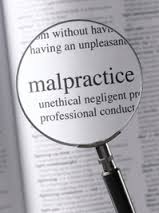 We get a lot of calls about medical malpractice claims that arise from a doctor’s misdiagnosis of a serious medical condition. Misdiagnosis occurs when the physician doesn’t realize that the patient has a particular medical problem and sends them home with the wrong diagnosis and the wrong treatment plan.
We get a lot of calls about medical malpractice claims that arise from a doctor’s misdiagnosis of a serious medical condition. Misdiagnosis occurs when the physician doesn’t realize that the patient has a particular medical problem and sends them home with the wrong diagnosis and the wrong treatment plan.
Sometimes, the patient may die or suffer some other catastrophic injury like the loss of fingers or other amputation because they did not get the necessary medical treatment in a timely fashion.
Misdiagnosis of medical problems can occur in any setting where patients interact with doctors. For example, it could happen in your family doctor’s office, a pediatrician’s office, an internist’s office, an urgent care facility, or even in a specialist’s office.
One of the more common settings for this kind of medical malpractice is the emergency room at the local hospital. Part of the reason that emergency rooms are the location of misdiagnosis has to do with the nature of the practice of emergency room doctors. A crowded, busy emergency room particularly in a city like Norfolk or Virginia Beach can be very stressful. Emergency room physicians often get frustrated by the fact that some people, particularly those without health insurance, are forced to come to the emergency room to treat chronic problems rather than the kind of acute emergency situations that those hospital emergency rooms are really designed for. Nevertheless, the proper method of diagnosis for an emergency room physician doesn’t change just because his or her waiting room is busy or crowded.
The standard method for diagnosis is called differential diagnosis. Using differential diagnosis, the doctor is trained to figure out what are the possible problems with the patient and rank those in terms of the severity of risk to the patient’s health. The bigger the risk, like the patient dying or losing a limb, the more attention that needs to be paid to either exclude that as not being the cause of the problem or to make treatment to prevent the harm a priority.
Unfortunately, sometimes the rushed emergency room doctor will not take the time and get the differential diagnosis right. They may fail to think of and rule in or out a particular problem like appendicitis, or inflamed appendix, ignoring the symptoms which match up with that diagnosis. Another way that emergency room misdiagnosis occurs is where the doctor or the hospital triage or intake nurse do not listen carefully enough to the patient to get all of the relevant history and symptoms.
For example, the hospital emergency room may not recognize that there is some kind of mental or cognitive problem that is a sign of a stroke, by assuming that the patient is slow for some other reason. We have often seen in our law practice where the emergency room doctors treat folks who were in automobile accidents like second-class citizens not giving enough attention to some of the serious but more subtle effects that can happen like moderate traumatic brain injury. Sometimes a misdiagnosis in the emergency room will not result in a catastrophic injury to the patient because the correct diagnosis will be picked up later by a doctor who spends more time with the patient.
However, it is unfortunately too frequent that a loved one, whether a son or daughter, husband or wife, mom or dad, is sent home from the emergency room told that they just have the flu or a stomach bug only to have them find out days later that they have something much more serious and life threatening which went untreated because of a medical mistake.